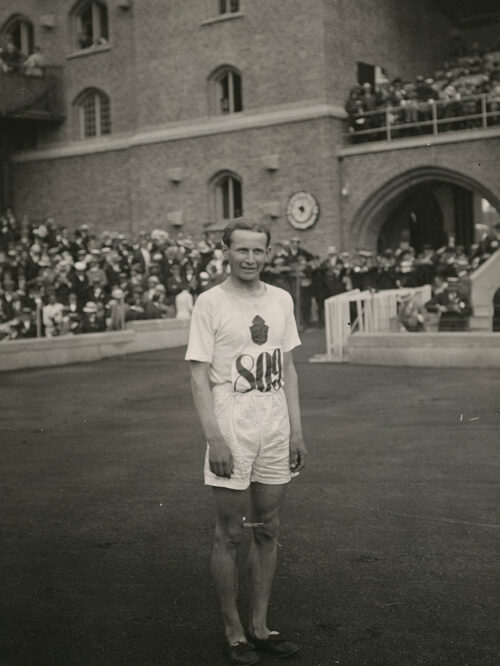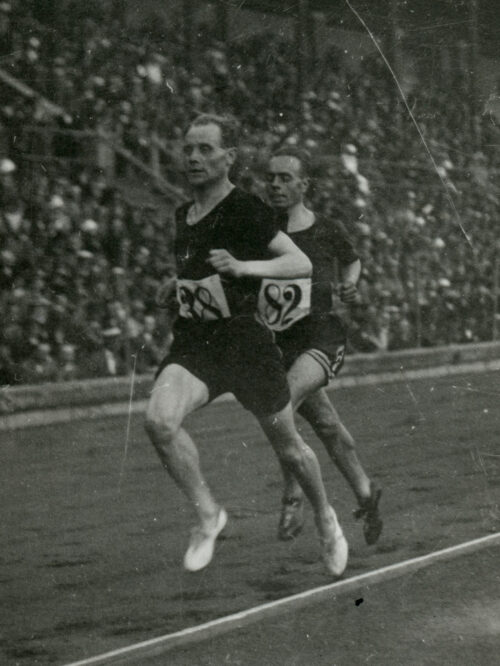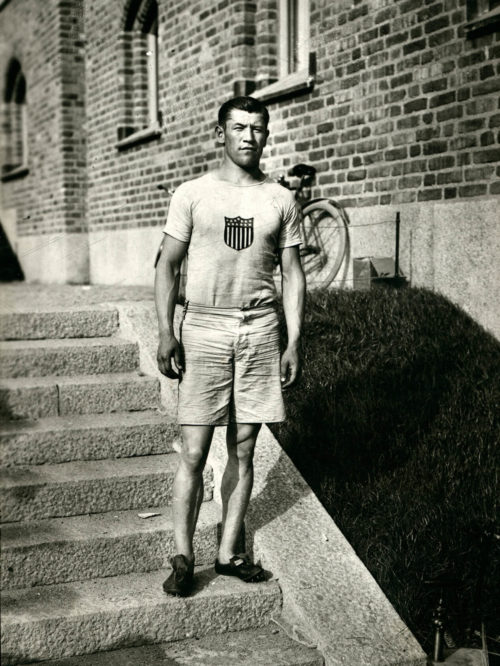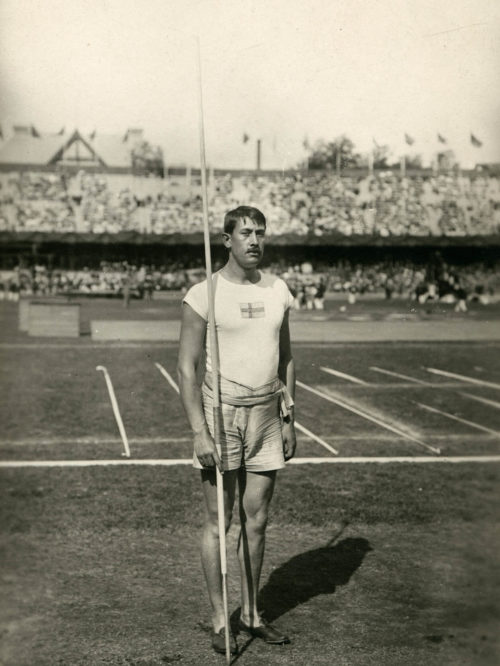Gunder Hägg
Gunder Hägg was born in Jämtland in 1918. He was the son of a lumberjack, and he himself worked as a farmhand and lumberjack. He had a natural talent for running that would come to amaze the world during the troubled war time of the 1940s. In Sweden, he started a running craze that swept the whole nation. He was considered a light in the dark during World War II. In the summer of 1942, Hägg broke ten world records in 80 days! The distances varied from 1,500 to 5,000 meters.
One of these world records took place at the Stockholm Stadium on the 17th of July 1942. The distance was 1,500 meters. Despite persistent rain and a though track, the Jämtlandic star seemed to fly through the air in a graceful style that made Stockholm’s stadium reach boiling point. When he crossed the finish line, the clock stopped at 3:45.8 – an improvement of a full two seconds. Unfortunately, Gunder Hägg was at the top of his career during World War II and therefore didn’t get the opportunity to participate in the Olympics. Still, he will always be remembered as the runner who broke a total of 16 world records between 1941 and 1945, and who ran more beautifully than anyone else.





